CUHK Sustainability Conference explores global trends of circular economy, sustainable finance and beyond CSR
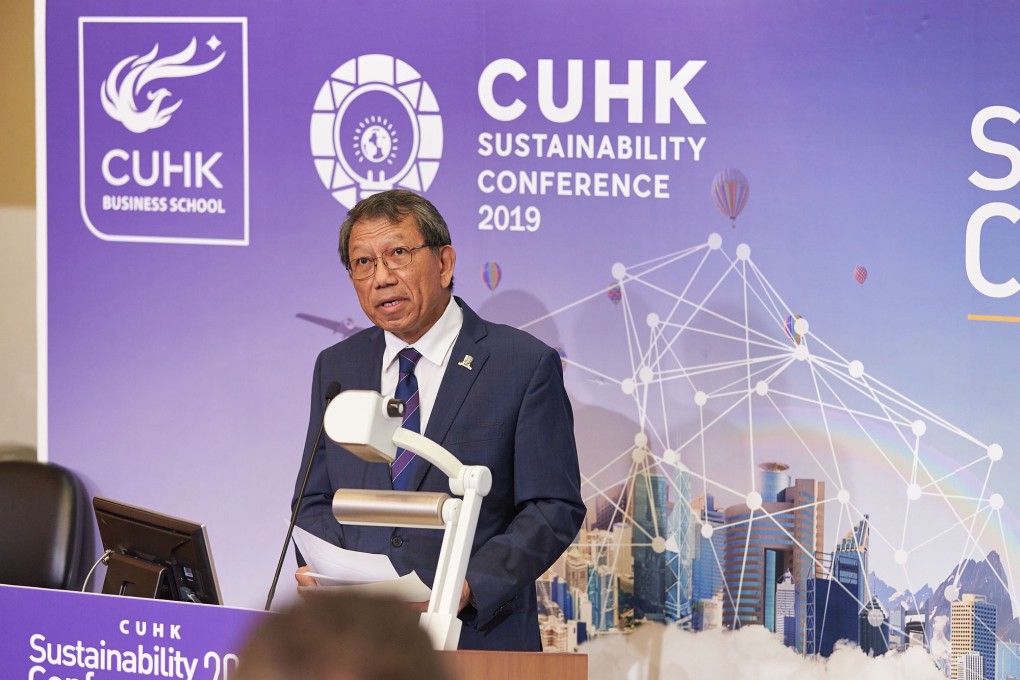
[Sponsored Article]
Reflecting the growing global trend of forward-looking enterprises strategising their profit-making and investment to drive positive social and environmental impact, the “CUHK Sustainability Conference 2019” had broadened its scope.
This is the only student-led conference in the Asia-Pacific region, which is entirely initiated and organised by a group of MBA students of the Chinese University of Hong Kong Business School. The conference’s primary objective was to bring together thought leaders, practitioners, and key opinion leaders in the sustainability field. These individuals hailed from both the public and private sectors, such as business corporations, financial institutions, as well as civil organisations and academia.
In the past, this conference’s main theme was Corporate Social Responsibility, but this year’s 12th edition of the conference expanded its breadth and focused on sustainability. While CSR mainly focused on corporate philanthropy and company-initiated social services, sustainability brought it to the next level: the conference stressed that corporations and civil organisations should approach sustainability by aligning its profits along environmental, social, and governance factors. Joanna Iu, President of the Sustainability Conference Committee, stated that the expanded scope of sustainability also covered more diverse industries. “We held in-depth discussions with sponsors and partners to find out what they wanted out of the conference and integrated them into the agenda.”
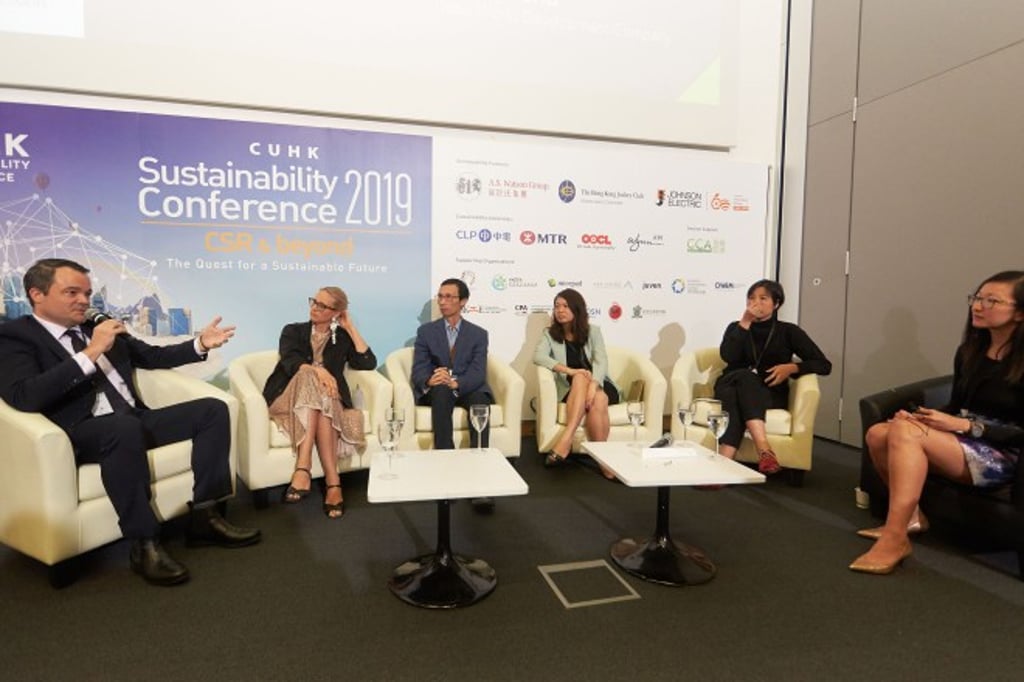
A heightened awareness of sustainability had emerged in Hong Kong’s business sector, Ms Iu said. “More companies, primarily large corporations, initiate sustainability programmes and forge partnerships with NGOs, the government, civil societies, and the public.”
Sustainability was also gaining traction globally, said Ajithkumar Dhevarajan, Vice President of the Committee. “For instance, Nike has incorporated recycled materials into its trainer production. In the future, many corporations’ survival will depend on their sustainability strategies.”
These themes were reflected in the conference. Topics, such as “Circular Economy” and “ESG and Green Finance”, were introduced to the agenda to reflect the latest sustainability trends, and also to make the conference’s core message resonate better with the participants that hailed from different backgrounds and personal interests. In addition, the introduction of panel discussions and Q & A sessions were aimed to encourage greater participation involvement by panelists and attendees during the conference.
A growing number of consumers in many developed economies had become better educated about sustainability. They expected companies to deliver products that helped advance positive social and environmental impact, noted Kartik Krovvidi, Director of Sponsorship of the Committee. “While most consumers in developing countries have remained price-driven, the situation is changing, especially among the middle class. In the future the collective demand is likely to grow to a level that allows companies to build the economies of scale to supply sustainability-driven products and services at comparable cost.”
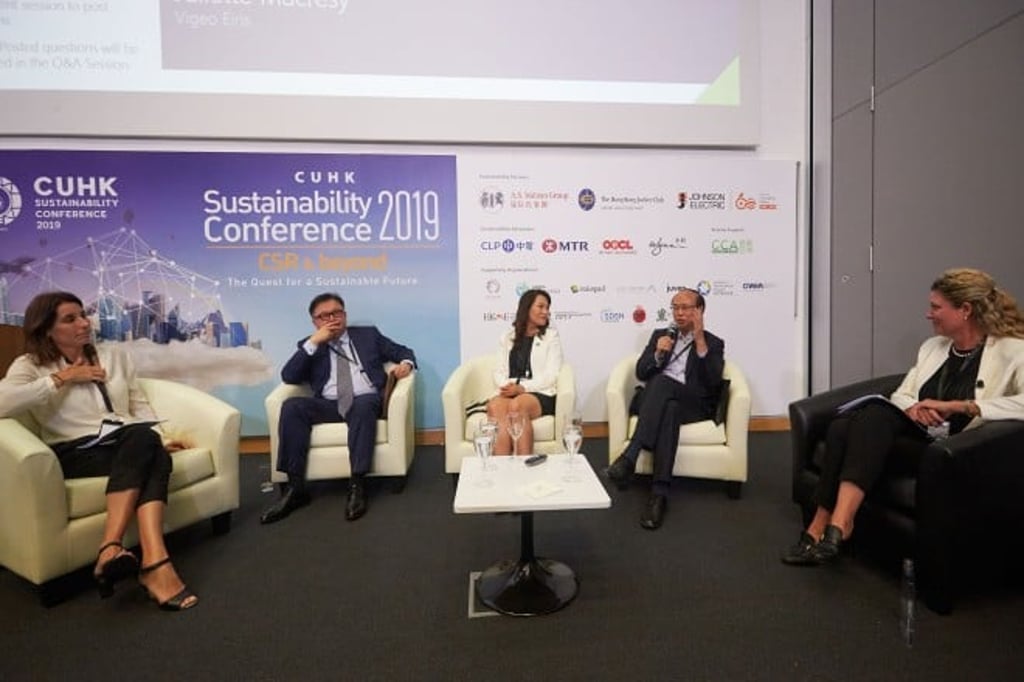
The panel discussion “Circular Economy: How rethinking resources is a war on waste” focused on the clothing industry because Hong Kong was a fashion hub, said Mr. Dhevarajan. “The panelists share their new ideas on making their products sustainable, which can be applied to other sectors.”
The panel discussion on the Circular Economy featured panelists from AS Watson, H&M, New World Development, and civic organisations Redress and The Green Earth. Global fashion retail chain H & M encouraged exploring ways to use textile waste in the production of new items. Hanna Hallin, Sustainability Manager of H & M (Greater China), said the chain tried to influence behavioral change by incentivising customers to hand in used garments in exchange for vouchers at its retail stores:“We support research institutes in Hong Kong that study the possibility of making recycled textiles into new yarns and converting plastic bottles into polyester.”
However, Kay Liu, Education Director at Redress, pointed out that because garment production using recycled textiles was still at its infancy, the cost remained high: “We lack the infrastructure to support the recycling circular model to make it more affordable for consumers. We need to build the economies of scale,” she said.
From a broader perspective, moderator Hetti Cheung of CUHK Business School observed that although OECD countries had put increased efforts in promoting sustainability, developing countries, like those in Asia, continued to face pollution problems. She asked the panelists to share their thoughts on how governments could help drive changes.
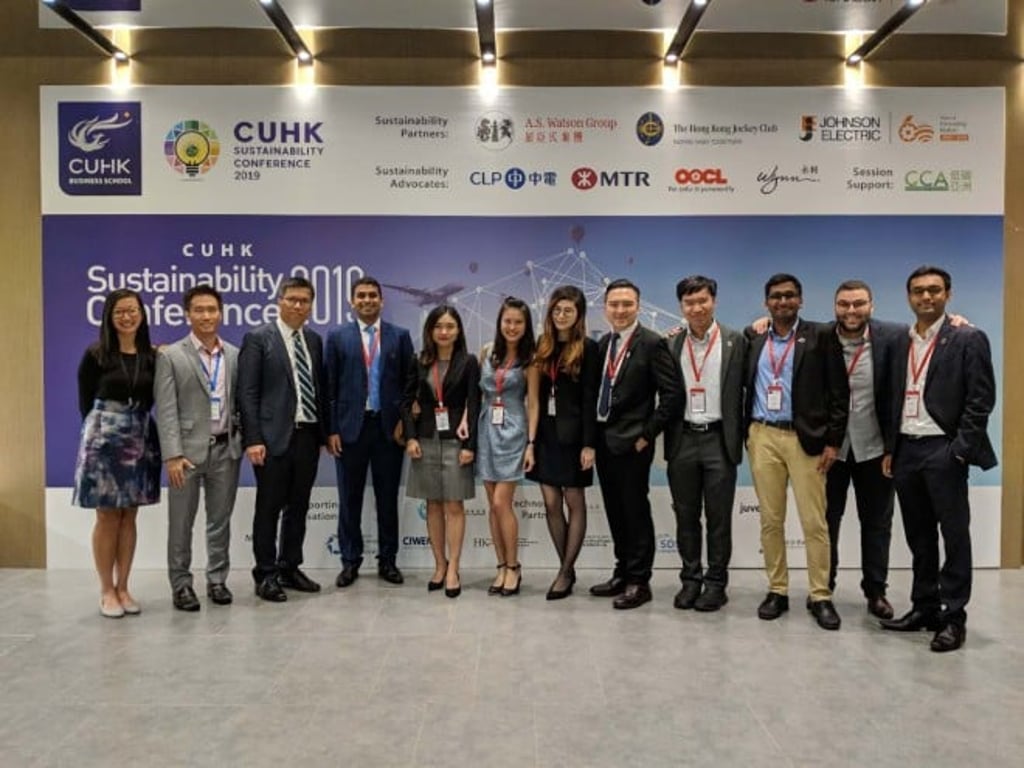
Panelist Sébastien Pivet, Quality Assurance Director (Health & Beauty) of A.S. Watson Group, believed that levies might help. “Many countries may need legislation,” said Pivet. “[At corporate level] we also want to form partnership and bring together all the stakeholders to find solutions.”
Echoing Pivet’s sentiment was Venisa Chu, Senior Manager of Sustainability at New World Development Company Limited. She observed that in the more mature Hong Kong market, New World worked with its partners in a bottom-up approach to promote sustainability: “It’s more about government policies and a top-down approach in Mainland China.”
Founder and Executive Director of The Green Earth, Edwin Lau Che-feng, concluded: “For the circular economy to work, the government should take the lead to meet the sustainability development goals. It can start with waste charging.”
Meanwhile, ESG and green finance practitioners explored impact investment at the “ESG Integration and Green Finance: approaches in Asia” panel discussion. Moderator Marie Rosencrantz, Adjunct Associate Professor at HKUST Business School, said many companies in Hong Kong took into account green finance and ESG when they reviewed the various aspects of their operations.
CEO of Carbon Care Asia, Albert Lai, believed that the main driver of green finance and ESG was the urgent need for responses to climate change.
Water Cheung echoed Lai’s view from an investor’s perspective. “I’ve been involved in raising capital for impact financing. Institution investors in Asia are looking at bigger investment in green fund,” said Cheung, who is the Senior Partner and CEO Asia Pacific, StormHarbour Securities (Hong Kong) Ltd.
The future of green finance was bright, believed Tracy Wong Harris, Deputy Secretary General, Hong Kong green Finance Association. “Climate risks will have an impact on all investment portfolios. Regulators are looking at the future impact of climate risks. Now is the perfect time for green finance development. It’ll become the mainstream.”
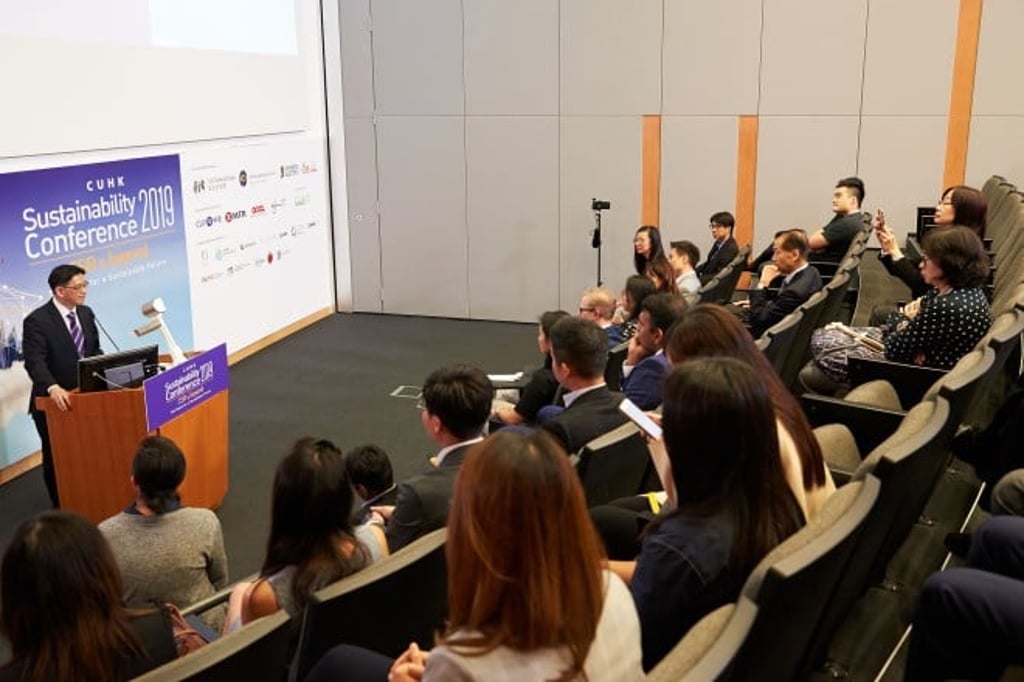
Another objective of the conference was to nurture the next generation of sustainability-minded business leaders. “We aspire to build a career with corporations that deliver positive impact. That’s why we want to explore sustainability in-depth. [Through this event] we also aim to raise fellow students’ awareness about sustainability so that it will become an integral part of their future careers,” Krovvidi said.
The conference enjoyed the support from many local and international corporate sponsors. They included A.S. Watson Group, Johnson Electric Industrial Maunfactory Limited and The Hong Kong Jockey Club.